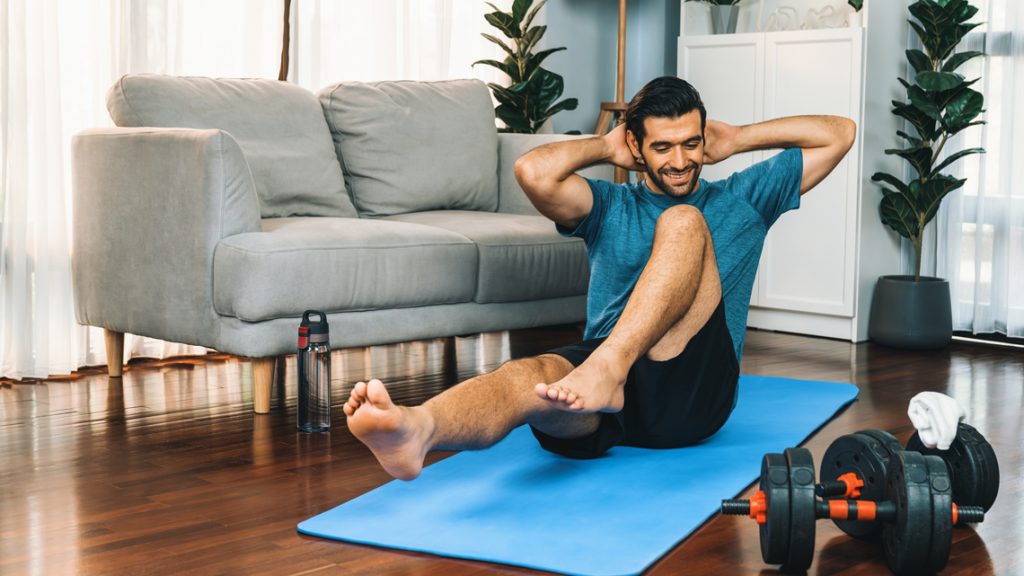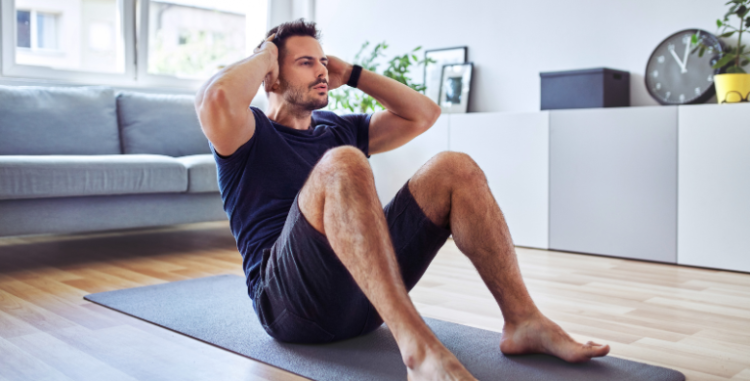In a world that demands constant productivity, instant communication, and ever-increasing responsibilities, it’s easy to feel overwhelmed. Our fast-paced society—filled with endless tasks, expectations, and pressures—often leaves little room for relaxation or self-care. Anxiety, stress, and a sense of being “on edge” have become common feelings for many of us, and they can have a significant impact on both mental and physical well-being.
But, what if you could learn to find peace amidst the chaos? What if there were simple practices you could incorporate into your routine to feel more centered, calm, and in control?
In this article, we’ll explore actionable steps and practical tools to help you maintain inner balance in your fast-paced life and overcome anxiety. With a few simple shifts in perspective and daily habits, you can experience greater calm, clarity, and peace, no matter how hectic life becomes.
1. Embrace the Power of Mindful Awareness
Why It Works:
Mindfulness is the art of being fully present in the moment, without judgment or distraction. In a fast-paced world, we often find ourselves rushing through tasks, multitasking, and planning for the next thing before we’ve even finished the current one. This constant “doing” leaves little room for self-reflection or the ability to truly experience the present moment.
Mindfulness is a powerful antidote to this. It helps you break free from the cycle of anxiety by focusing on what’s happening right now, rather than worrying about what’s ahead or dwelling on the past.
How to Practice Mindfulness:
- Start with the Breath: When you feel anxiety rising or feel scattered, pause and take a few deep breaths. Inhale slowly through your nose, hold for a moment, then exhale fully. Pay attention to how your body feels as you breathe. This simple exercise helps ground you and brings your attention to the present moment.
- Mindful Moments: Integrate mindfulness into everyday activities. Whether you’re eating, walking, or even doing household chores, focus all your attention on the task at hand. Notice the sensations, textures, smells, and sounds involved. This focus can help you feel more connected to the present, easing feelings of anxiety.
Why It Helps:
Mindfulness helps create a mental space between stimulus and reaction. Instead of automatically jumping into stress or anxiety, you train your mind to pause, observe, and respond with clarity. This mental detachment gives you more control over your emotions and reduces the impact of stress.
2. Prioritize Self-Care Without Guilt
Why It Works:
In a world that glorifies busyness, self-care often gets overlooked. Many people feel guilty taking time for themselves, especially when there are a million things to do. However, neglecting your own well-being only increases anxiety and emotional burnout.
Self-care is not a luxury—it’s a necessity. It’s about prioritizing your physical, emotional, and mental health so you can show up as your best self for others and for yourself.
How to Practice Self-Care:
- Set Boundaries: Learn to say “no” to things that drain your energy or don’t serve your well-being. Protect your time and energy.
- Rest & Recharge: Ensure you are getting enough rest. This could mean taking a 10-minute break in the middle of a busy workday, turning off all screens before bed, or taking a mental health day when needed.
- Engage in Activities that Nourish You: Whether it’s reading, taking a walk in nature, or spending time with loved ones, find activities that replenish your energy and bring you joy.
Why It Helps:
Taking time for self-care helps reduce stress and burnout. By giving yourself permission to rest and reset, you build resilience against anxiety and improve your emotional regulation. When you care for yourself, you’re better equipped to manage life’s demands.
3. Cultivate Emotional Awareness and Emotional Intelligence
Why It Works:
Anxiety often arises when we feel out of control or disconnected from our emotions. The more we suppress or ignore our feelings, the more they can bubble up in unhealthy ways—leading to stress, irritability, and eventually, anxiety. By cultivating emotional awareness, you can understand your feelings, create healthy emotional outlets, and avoid emotional overload.
Emotional intelligence (EQ) is the ability to recognize, understand, and manage your own emotions, as well as the emotions of others. People with high EQ tend to have better relationships, handle stress better, and are less prone to anxiety.
How to Practice Emotional Awareness:
- Label Your Emotions: When you feel a strong emotion (stress, frustration, sadness), take a moment to identify it. “I’m feeling frustrated right now.” Naming the emotion creates distance and gives you more control over it.
- Explore the Triggers: Reflect on the root causes of your emotions. What triggered your anxiety? Is there an underlying fear or belief that you can address? Understanding why you feel the way you do allows you to respond with more clarity.
- Journal: Write down your thoughts and feelings daily. Journaling can help you process emotions, identify patterns, and release built-up stress.
Why It Helps:
Being aware of your emotions makes it easier to manage them. By practicing emotional intelligence, you can approach your feelings with compassion and insight, rather than judgment. This emotional clarity helps you manage anxiety more effectively.
4. Create a Simple Daily Routine with Flexibility
Why It Works:
One of the biggest sources of stress is a lack of structure. When our days feel chaotic, we can quickly become overwhelmed by the sheer number of things we need to do. However, a simple, well-organized routine helps manage time and reduces decision fatigue, creating space for calm and focus.
However, it’s important to keep the routine flexible. Rigidity can create additional stress, so allow some room for adjustments as life unfolds.
How to Create a Flexible Routine:
- Start with the Essentials: Focus on key priorities—work, personal time, self-care, and sleep. Set aside time for activities that recharge your energy.
- Include Downtime: Schedule breaks throughout your day to relax and refocus. Whether it’s a 10-minute meditation, a quick walk, or simply sitting in silence, allow your routine to include moments of stillness.
- Prioritize Sleep: Lack of rest can heighten anxiety. Ensure you’re getting enough sleep each night to reset both your body and mind.
- Be Flexible: Allow yourself room to adapt. If something unexpected happens, be kind to yourself and adjust accordingly without guilt.
Why It Helps:
Having a routine provides structure and reduces the mental clutter that leads to anxiety. It also gives you a sense of control over your day, helping you feel more focused and grounded. Flexibility allows you to roll with the punches without feeling overwhelmed.

5. Stay Physically Active to Relieve Tension
Why It Works:
Physical activity is one of the best ways to combat stress and anxiety. When you exercise, your body releases endorphins—chemicals that naturally reduce stress and improve mood. Regular exercise also helps manage anxiety by promoting better sleep, improving cognitive function, and reducing physical tension in the body.
How to Get Moving:
- Walk: A simple walk around your neighborhood or in a park can do wonders for clearing your mind and easing anxiety.
- Yoga or Stretching: Gentle movement like yoga, tai chi, or stretching can relieve tension from your body and calm your mind.
- Cardio Workouts: More intense exercise like running, swimming, or cycling releases endorphins, helping you feel more relaxed and centered.
Why It Helps:
Physical activity helps release built-up tension in your body, promotes deep relaxation, and improves mood. Whether you prefer gentle stretching or an intense workout, moving your body regularly keeps stress at bay and helps you find balance.
6. Limit Overstimulation and Digital Detox
Why It Works:
In our hyper-connected world, we’re constantly bombarded by emails, social media notifications, news updates, and other distractions. This constant influx of information can leave us feeling mentally drained, anxious, and unable to focus.
Taking time to disconnect from digital devices and limit overstimulation can be a game-changer for mental well-being.
How to Limit Overstimulation:
- Digital Detox: Designate specific times each day (or week) to disconnect from screens. Consider a phone-free evening or a tech-free weekend.
- Create Screen-Free Zones: Make certain spaces in your home (like the bedroom or dining area) tech-free zones. This helps create a sense of calm and presence.
- Limit News Consumption: Constantly consuming news or social media can increase anxiety. Choose specific times during the day to check the news, and avoid overloading yourself with information.
Why It Helps:
Limiting exposure to digital stimuli helps reduce mental overload and creates more space for relaxation. Reducing screen time also encourages you to be more present in your real-life interactions, reducing feelings of anxiety and stress.
Final Thoughts: Finding Your Inner Calm in a Fast-Paced World
Finding inner balance and overcoming anxiety in today’s world requires a combination of awareness, self-care, and a mindset shift. It’s about embracing the present moment, creating structure in your life, and cultivating emotional resilience. Most importantly, it’s about recognizing that you have the power to choose how you respond to life’s demands.
By making small, intentional changes—such as practicing mindfulness, prioritizing rest, and staying physically active—you can create a lifestyle that supports both your mental and physical well-being. Through these practices, you’ll be better equipped to handle stress, stay balanced, and find peace, no matter how fast-paced life may get.


















































